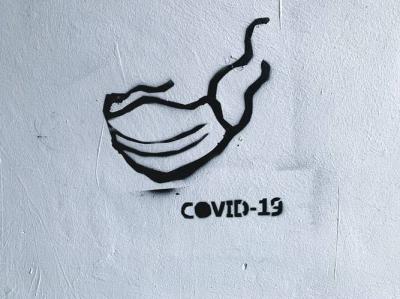On Saturday, the World Health Organization's chief scientist, Soumya Swaminathan, stated that the Indian variant of COVID-19 is one of the factors contributing to the virus's exceptionally rapid spread in India, as it is more contagious and deadly, and it has a greater ability to evade vaccines compared to the original strain of the virus. Swaminathan said in an interview with Agence France-Presse in Geneva that the variant "B.1.617," first discovered in India in October, is certainly a key factor in accelerating the pandemic's spread and causing it to spiral out of control in the world's second-largest country by population.
For the first time since the outbreak began in the country, India reported a record daily death toll of over four thousand, along with 400,000 new infections, although experts believe that these official figures are significantly lower than the actual situation on the ground. Dr. Swaminathan, a pediatrician and Indian researcher, stated that the WHO classifies this variant as one of the most dangerous variants compared to the original virus strain due to its greater transmissibility and its ability to overcome the defenses provided by vaccines; furthermore, the fatality rate among patients infected with this variant is higher than that for those infected with the original variant.
She explained that "there are mutations in this variant that increase transmission rates and may also make it resistant to the antibodies that the body develops either through vaccination or natural infection with the virus." However, the senior WHO official noted that this variant cannot be solely blamed for the enormous increase in COVID-19 cases in India, pointing out that the Indian government also bears responsibility for seemingly abandoning caution too early and allowing for "massive public gatherings," which created an ideal breeding ground for the spread of the virus.
Swaminathan highlighted that in a vast country like India, infections can quietly spread over several months without drawing much attention. "Those early signs were neglected until the (epidemic curve) reached a point of vertical takeoff." The doctor warned that combating the pandemic in India is an extremely difficult task "because the virus spreads among thousands of people and multiplies at a pace that makes it very hard to stop," cautioning that vaccination alone will not be enough to regain control of the situation.
India, the world's largest vaccine producer, has so far administered both doses of the vaccine to only 2% of its population of 1.3 billion. Swaminathan warned that "it will take months, if not years, to reach a vaccination rate of 70 to 80%" among the population. She indicated that in the short term, Indian authorities would need to resort to social and health measures that have already been tested and proven effective in reducing the spread of the pandemic.
The scale of the outbreak in India increases the risk of the emergence of new, more dangerous variants. Swaminathan stated, "As the virus multiplies, spreads, and transmits, the risk of variants increases, and their ability to adapt rises." She warned that "variants that accumulate a large number of mutations may eventually become resistant to the vaccines we currently have," considering this a "problem for the entire world."




